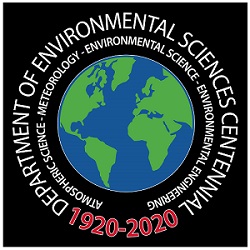DATE/TIME: Friday, October 1, 2021, 2:30 pm
PLACE:
J. Angel Soto-Centeno
Department of Earth & Environmental Sciences, Rutgers University, Newark
The role of environment and species traits in shaping Caribbean bat communities
The islands of the Caribbean are considered a hotspot of biodiversity characterized by high levels of endemism and also extinction. Almost 75% of all bats in this region are found nowhere else in the world. On the other hand, bat communities over time have lost over 30% of its diversity. Studies suggest that historical climatic events changing from glacial to interglacial conditions and the resulting patterns of habitat and sea level changes led to the demise of this fauna. Herein, I combined chronologically controlled paleontological data with distribution modeling to examine the hypothesis that past climate change directly lead to population level losses beyond the Pleistocene-Holocene transition across the Caribbean. To understand how environmental factors affect the modern bat diversity, I examined the resilient insular endemic Red Fig-eating Bat to provide insight into the role of intra-island dynamics in promoting population connectivity and it's potential influence on survival. I conclude with an exploratiory analysis borrowing from machine learning approaches to determine the characteristics that would make a species "a loser" in the extinction game.



